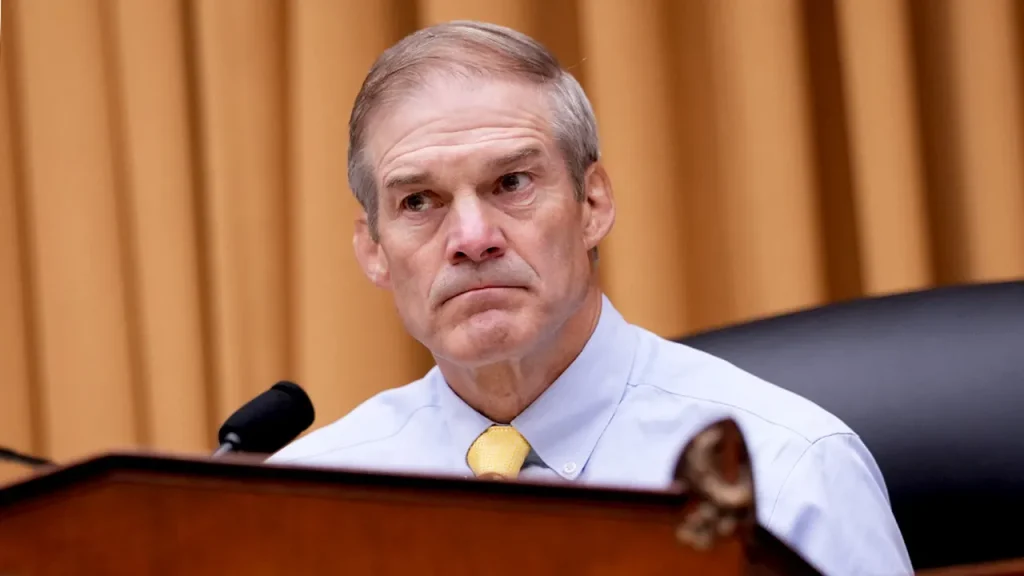Fox News Morning Brief: A Snapshot of Today’s Headlines
In a flurry of political developments, the Biden administration’s Department of Justice has reportedly subpoenaed Representative Jim Jordan’s phone records covering a period of more than two years, marking a significant escalation in ongoing investigations involving congressional figures. This revelation comes alongside news of Representative Alexandria Ocasio-Cortez’s vocal criticism of a recent meeting at the White House between former President Trump and activist Zohran Mamdani. Meanwhile, in what many are describing as a watershed moment in public health communication, the Centers for Disease Control and Prevention (CDC) has made a notable reversal on its longstanding position regarding vaccines and autism, igniting renewed debate among medical professionals and concerned parents nationwide. These developments underscore the increasingly contentious nature of American political and institutional discourse, where even scientific consensus becomes terrain for partisan disagreement.
Beyond the political sphere, several disturbing incidents have captured public attention, including a community on edge after the discovery of three bodies in as many days, prompting speculation about a potential serial killer in their midst. Adding to this atmosphere of unease, the tragic death of a cheerleader aboard a cruise ship has garnered headlines as investigators piece together a complicated narrative involving family conflicts and mysterious circumstances surrounding her passing. These incidents remind us of the fragility of public safety and the complex human stories behind each headline, often revealing deeper societal issues that transcend the immediate tragedy. As communities grapple with these events, the ripple effects extend far beyond those directly involved, touching on fundamental concerns about security and interpersonal relationships in modern American life.
In developments affecting everyday Americans, the Transportation Security Administration (TSA) is reportedly considering implementing fees for travelers who use alternative identification verification methods at airports, potentially adding another financial burden to air travel. Meanwhile, a group of undocumented immigrants facing penalties of up to $1.8 million has filed a lawsuit against the federal government, challenging what they describe as “ruinous” financial penalties that they argue are disproportionate and unjust. These stories highlight the evolving landscape of American administrative policy and its direct impact on both citizens and non-citizens navigating increasingly complex systems of regulation and enforcement, often with significant financial consequences attached to compliance or non-compliance with government mandates.
The legal battlefield continues to intensify as the Department of Justice has filed a lawsuit against California Governor Gavin Newsom over legislation that would provide college tuition benefits to undocumented immigrants, representing yet another front in the ongoing federal-state conflicts over immigration policy. In Maryland, courts are deliberating the fate of Kilmar Abrego Garcia as immigration enforcement policies remain a flashpoint of contention across jurisdictions. Meanwhile, in a rare moment of bipartisanship, Senators Kyrsten Sinema and Garret Graves co-authored an opinion piece emphasizing America’s critical need to lead in artificial intelligence development despite their opposing political affiliations. These stories collectively illustrate the complex interplay between federal authority, state autonomy, and the search for pragmatic solutions to pressing national challenges that occasionally transcend traditional partisan divisions.
Media dynamics continue to evolve as former White House Press Secretary Jen Psaki criticized the current administration for allowing “sycophants” to dominate press briefings, suggesting a deterioration in the quality and independence of White House press corps interactions. In education, a major teachers union faces scrutiny after training documents revealed what critics describe as a “radical plan” for classroom instruction, further inflaming debates about appropriate content and methodologies in American education. The entertainment industry is not immune to controversy either, as an unnamed actor has spoken out against Hollywood’s changing standards, claiming these new rules have made securing roles increasingly difficult. These narratives highlight the ongoing tensions in American institutional spaces as they navigate changing social expectations, political pressures, and evolving professional standards in an era of heightened polarization and public scrutiny.
The human element remains central to news coverage as Grammy-nominated artist Jelly Roll debuts a clean-shaven look following significant weight loss, while former Vice President Mike Pence penned an opinion piece declaring there is no place for antisemitism in America—a sentiment that resonates amid increasing reports of hate incidents nationwide. In Seattle, the mayor-elect announced she would no longer require financial support from her parents given her new mayoral salary, while a conservative activist who was punched in the face has filed a lawsuit after the Manhattan District Attorney acknowledged an error in handling the case. Even royal news makes an appearance, with reports that former Prince Andrew is fighting “tooth and nail” to protect his daughters from royal fallout. These stories remind us that behind the political battles, policy debates, and institutional conflicts are real people navigating personal challenges, family relationships, and professional aspirations, bringing a necessary human dimension to our understanding of current events in an increasingly complex and divided national landscape.


